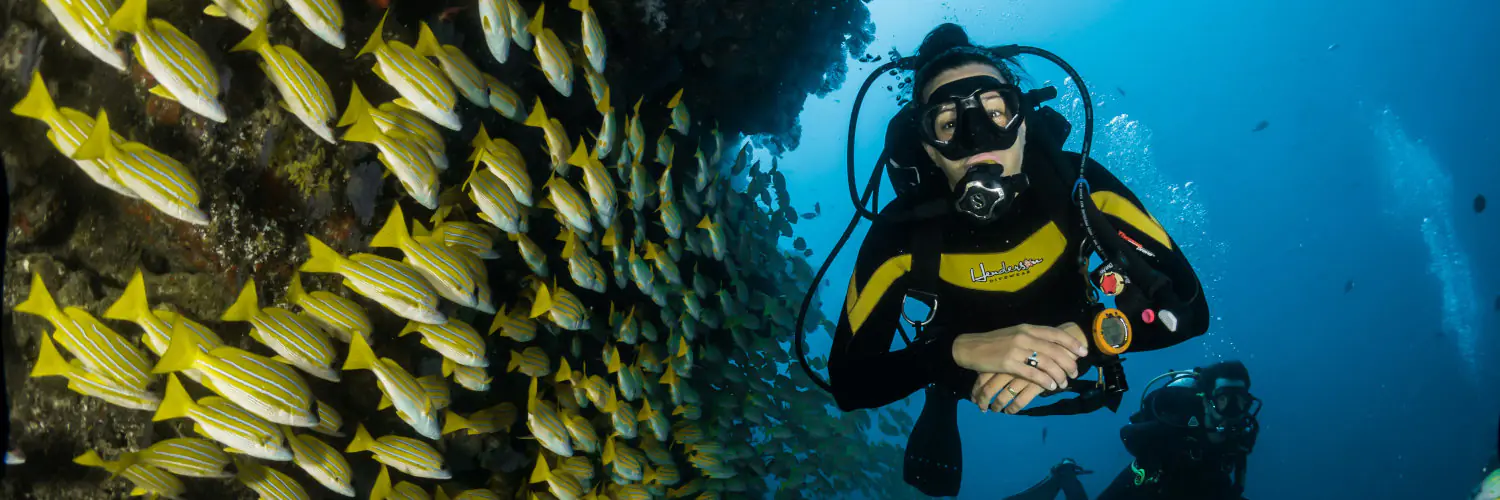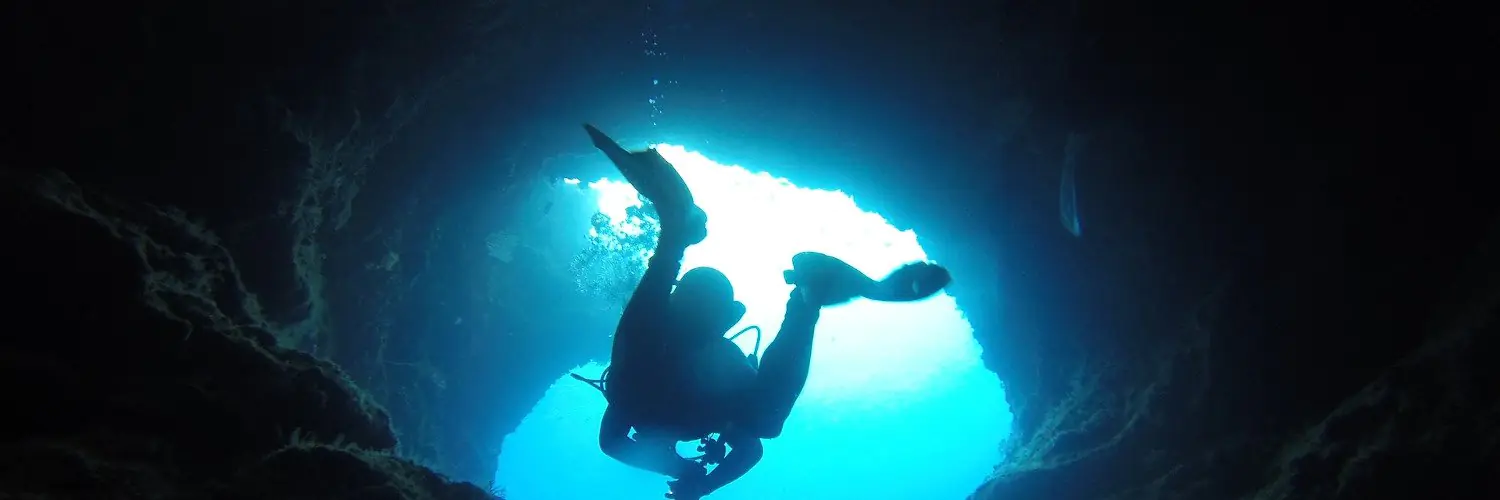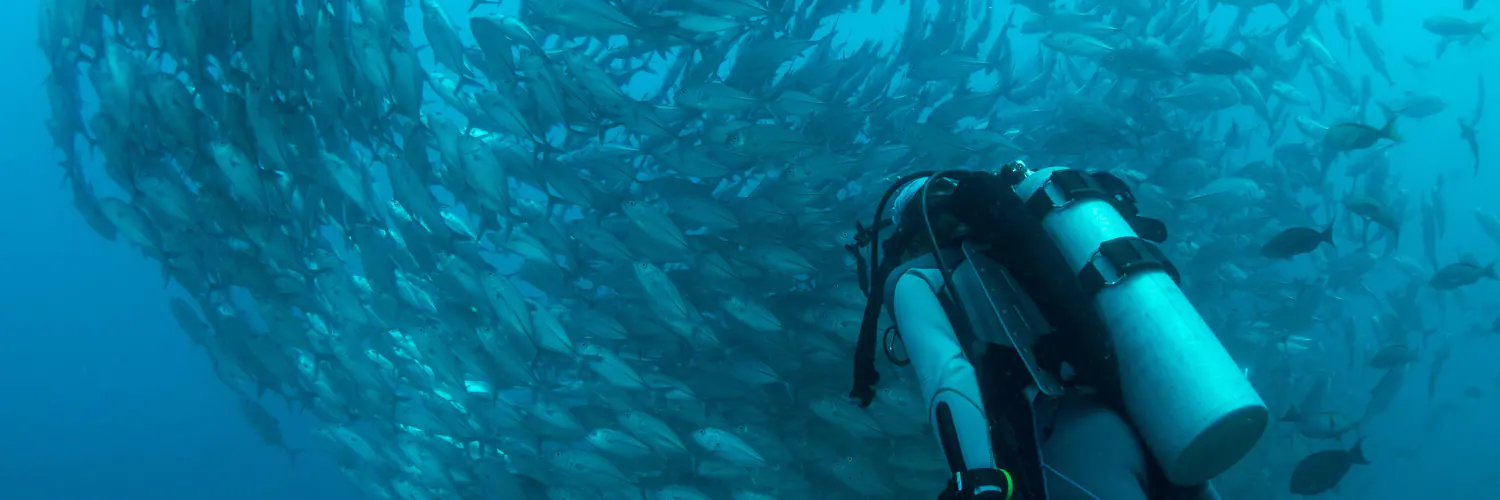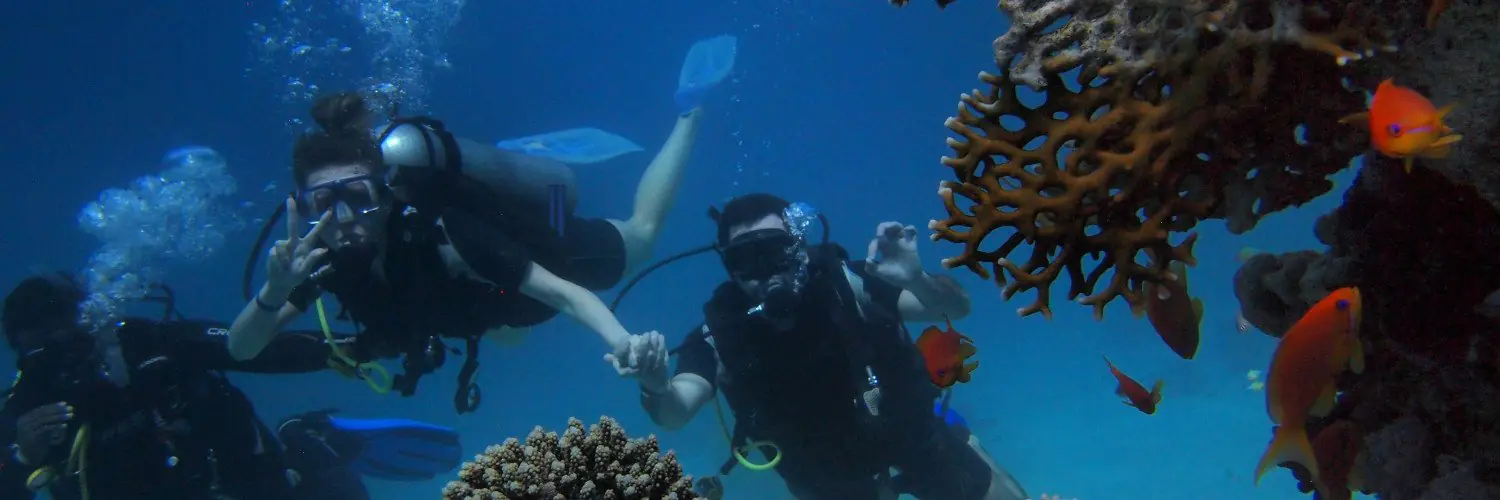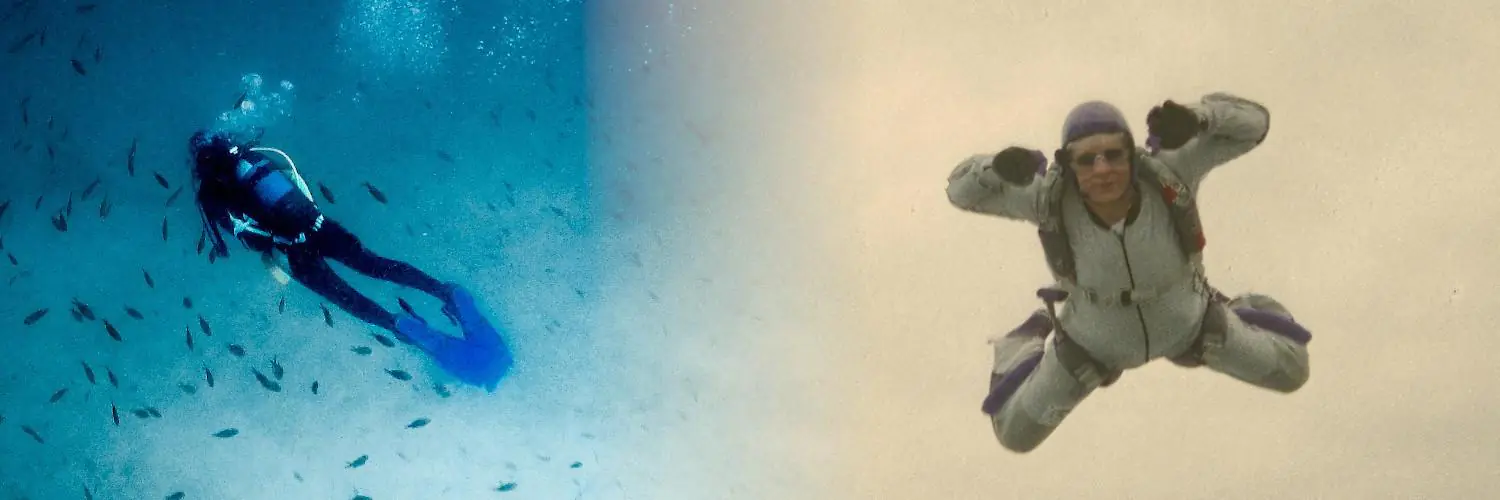Scuba diving is an activity that enthralls many with its offer of a glimpse into the vast underwater world. However, the effects of diving on a person’s body, particularly on blood pressure, raise important considerations. The shift from land to water significantly alters physical conditions, primarily due to increased pressure underwater. This environment change can affect blood pressure, an essential aspect of cardiovascular health.
When diving, individuals are subjected to the forces of water pressure, which increase as one descends. This can cause the body’s cardiovascular system to respond in order to maintain an adequate supply of oxygen to tissues. In some cases, blood pressure can rise as part of this response. It’s important for individuals with pre-existing high blood pressure to manage their condition and consult a healthcare professional before diving.
Risk associated with high blood pressure while scuba diving is not insignificant. Sudden spikes in blood pressure underwater can lead to complications, potentially damaging arteries and the heart, with increased risk of aneurysms or heart attacks. Proper assessment and control of blood pressure are crucial for divers. Controlled hypertension, under medical supervision, may not disqualify one from diving, but unmanaged high blood pressure poses a significant risk. Therefore, understanding and adhering to medical guidelines are essential to ensure safety while enjoying the underwater experience.
Table of Contents
Understanding Blood Pressure and Scuba Diving
Scuba diving can significantly impact blood pressure, and understanding these changes is crucial for divers, especially those with pre-existing conditions like hypertension or cardiovascular disease.
Basics of Blood Pressure
Blood pressure is the force exerted by circulating blood against the walls of the body’s arteries. It’s a vital sign of health, measured in millimeters of mercury (mmHg) and recorded as two numbers: systolic pressure (when the heart beats) over diastolic pressure (when the heart rests between beats). Normal blood pressure is typically below 120/80 mmHg.
Effects of Immersion on Circulation
Immersion in water naturally affects circulation. The body experiences a shift of blood from the limbs to the chest, termed ‘immersion induced centralization of blood’, leading to increased central venous pressure. This change can prompt the heart to work harder to maintain circulation, potentially elevating blood pressure and heart rate in the process.
- Cardiovascular Responses to Immersion:
- Increase in blood volume.
- Rise in central venous pressure.
- Potentially increased cardiac output.
Diving Medicine and Cardiac Stress
Scuba diving places the body under conditions that can add stress to the cardiovascular system. A diver’s heart rate and blood pressure may rise due to the physical exertion of swimming and the body’s adaptation to increased environmental pressure underwater. Those with cardiovascular disease or kidney disease should be aware of these potential stresses.
An exercise stress test may be used to assess a diver’s fitness, especially if underlying health issues are present. It evaluates how well the heart handles increased workload, which can be indicative of whether a person might safely engage in scuba diving.
Risks Associated with High Blood Pressure and Diving
Scuba diving with high blood pressure may expose the diver to serious health risks, primarily due to the complex interplay between underwater pressure changes and cardiovascular stress.
Hypertension and Potential Complications
Hypertension, or persistently high blood pressure, poses significant risks when an individual participates in scuba diving. The elevated pressure can lead to damage to the arteries and heart over time, which could result in life-threatening complications such as heart attacks or strokes while diving. Divers with hypertension must be cautious as the underwater environment amplifies cardiovascular strain.
Decompression Sickness and Blood Pressure
Decompression sickness (DCS), a risk for all divers, is particularly concerning for those with hypertension. As divers ascend and ambient pressure decreases, nitrogen absorbed in the body’s tissues can form bubbles if the ascent is too rapid. For individuals with high blood pressure, the risk of DCS may be heightened due to potential issues with blood circulation and gas exchange, making proper ascent rates and dive profiles even more crucial.
Common Medications and Dive Safety
Divers who manage their high blood pressure with medications must carefully consider the implications for dive safety. Common antihypertensive medications include diuretics and beta-blockers. Diuretics can lead to dehydration, affecting blood volume and circulation, which are critical factors when diving. Beta-blockers may limit the heart rate response necessary for physical exertion under water. Individuals taking these medications should consult with healthcare professionals to understand the interaction between their medication and diving activities.
Medical Evaluation and Fitness to Dive
Scuba diving can significantly affect cardiovascular function, making thorough medical evaluation and determining fitness to dive critical steps in ensuring the safety of divers. These assessments are designed to identify any pre-existing medical conditions that may put the diver at risk.
Pre-Dive Medical Screening
Before engaging in scuba diving, individuals should undergo a comprehensive medical screening. This screening is particularly vital for those with medical conditions such as diabetes or heart disease, which can be complicated by the hyperbaric conditions of underwater environments. The screening should encompass:
- Medical History Review: Including questions specific to respiratory, cardiovascular, and neurological health.
- Physical Examination: To check for physical signs that could contraindicate diving.
- Functional Capacity: To ensure the diver can withstand increased physical exertion and manage stress underwater.
Individuals who have conditions that could be affected by pressure changes, such as untreated pneumothorax or certain types of surgery, may be disqualified from diving.
Ongoing Health Conditions and Diving
People with ongoing health conditions, such as cardiovascular disease or diabetes, must be particularly cautious. Diving with these conditions requires:
- Regular Monitoring: Routine check-ups to manage and assess the progression of their condition.
- Medication Review: Understanding how medications can interact with diving activities, particularly drugs used in hypertension or diabetes management.
- Risk Assessment: Evaluating the increased likelihood of decompression sickness or other dive-related complications.
For example, a diver with hypertension should have their blood pressure controlled and be stable before diving, as high blood pressure can be exacerbated by the hyperbaric environment.
Exercise Testing Before a Dive
An exercise stress test may be indicated for older divers or those with known heart issues to measure the heart’s capacity to handle the activity. This test assesses:
- Cardiovascular Response to Exercise: Establishing baseline function and any abnormal responses.
- Exercise Capacity: Providing insight into the safety of engaging in the physical activity associated with diving.
The stress test could include measurements during exposure to hyperbaric oxygen, simulating dive conditions to ascertain specific cardiovascular risks related to pressure changes. This proactive evaluation aids to ensure that divers are not undertaking activities that surpass their physical capabilities.
Diving Practices for Managing Blood Pressure
In scuba diving, blood pressure management is crucial to ensure a diver’s safety under water. This section provides a detailed look into practices focusing on breathing, buoyancy, hydration, temperature, and decompression—all of which play a role in maintaining healthy blood pressure levels during a dive.
Regulating Breathing and Buoyancy
Proper breathing techniques are essential for managing blood pressure. Divers are advised to breathe slowly and deeply, which can help in maintaining a calm state and preventing stress-induced blood pressure spikes. Effective buoyancy control, attained through training and experience, minimizes exertion and helps maintain stable blood pressure. Divers should practice the use of the buoyancy compensator to reduce physical effort and avoid abrupt movements that could impact systolic and diastolic pressure.
Hydration and Temperature Control
Hydration plays a key role in blood pressure regulation. Divers should ensure they are well-hydrated before a dive, as dehydration can cause increases in blood pressure. Conversely, overhydration should be avoided. Drinking moderate amounts of water at regular intervals is advised. Additionally, divers should be aware of the thermal challenges posed by cold water dives. Proper thermal protection, through suitable wetsuits or drysuits, helps to mitigate the stress on the body and maintains a stable blood pressure by avoiding the constricting effects of cold on blood vessels.
Safe Ascent and Decompression
A controlled, safe ascent is critical for preventing decompression sickness and managing blood pressure levels. Divers need to adhere to recommended ascent rates and perform safety stops as required. This allows inert gases to be expelled from the body gradually, reducing the risk of decompression illness and preventing spikes in blood pressure. The use of dive computers can assist in monitoring ascent rates and decompression requirements efficiently. It’s important for divers to familiarize themselves with their equipment and adhere to the prescribed ascent protocols to maintain their health while diving.
Lifestyle Factors and Diver Health
A scuba diver’s health is significantly influenced by their lifestyle choices, which have direct implications on underwater activities, especially concerning blood pressure management.
Importance of Regular Exercise
Regular exercise is essential for scuba divers as it enhances cardiovascular health and helps maintain a healthy blood pressure range. Consistent physical activity strengthens the heart muscle, enabling it to pump blood more efficiently, thereby reducing the stress on arteries. For divers, a routine comprising moderate aerobic workouts is advisable, as it directly correlates with improved dive endurance and reduced susceptibility to decompression sickness.
Impact of Smoking and Alcohol
Smoking and excessive alcohol consumption are detrimental to a diver’s health. Smoking, in particular, can lead to vascular constriction and elevated cholesterol levels, which can exacerbate hypertension and increase the risk of arterial damage. Alcohol acts as a diuretic, which can lead to dehydration, adversely affecting blood pressure management. Divers are urged to quit smoking and moderate alcohol intake to mitigate these risks.
Diet and Cardiovascular Risk Reduction
A balanced diet plays a critical role in managing cardiovascular risk for divers. Foods rich in omega-3 fatty acids, fruits, vegetables, and whole grains contribute to lowering bad cholesterol (LDL) and mitigating obesity, which is a significant risk factor for hypertension. Divers should prioritize these food groups to maintain optimal health and ensure safe diving experiences. By adhering to a heart-healthy diet, divers can reduce arterial stress and improve overall blood pressure control.

